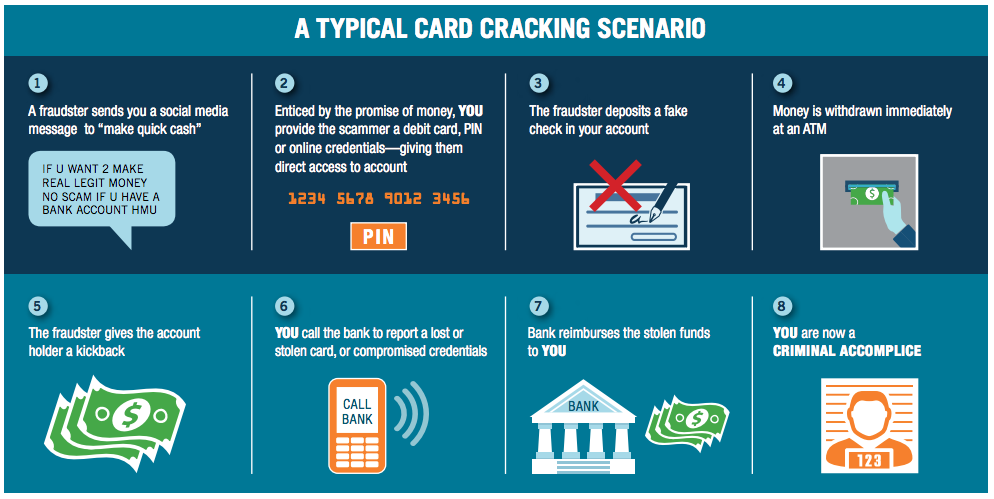What is the risk of giving someone my credit or debit?
You should never give your credit or debit card to anyone. By doing so, you are authorizing that person to use your account, and you’re responsible for any activity that happens as a result. For example, the person may withdraw funds from your account without your consent. Or, they may deposit fraudulent checks into your account. If this happens, you’ll be responsible for the full dollar amount of the check.
If you’ve given someone access to your credit or debit card, call 1 (800) 479-7928 to speak with a Member Service Representative so they help you protect your account.
Below is some information on a recent scam called “card cracking.”
Card Cracking Scam Information
It's becoming increasingly common for fraudsters to target young adults through social media channels like Facebook, Twitter, or Instagram. Scammers will convince individuals to share their checking account information or debit cards and PIN numbers - this is sometimes referred to as "card cracking." The scammer will use short, simple, alluring messages announcing a contest or gift card giveaway, or sometimes even a job offer. In some instances, scammers will ask people to respond to a text, video, or social media post that promises fast cash or even promotes card cracking itself as a quick way to pay bills.
How does the scam work?
The scammers deposit counterfeit checks into the account, and then use the checking account information or debit card to withdraw the funds before the bank can tell that the check is fraudulent. In exchange, scammers will offer some type of kickback. This can vary from 10% of the funds, all the way up to 50%.
The scammers may ask the account holder to report the debit card as stolen so they receive Reg E protection while the fraudulent funds are withdrawn. Rippleshot has a helpful flowchart of a typical card-cracking scenario listed below.

What’s the Damage?
Many victims don’t understand they’re committing a crime that may cost them 30 years in prison. In addition to being charged as an accomplice to a crime, they are also at risk of having their own money stolen from their accounts and having unauthorized purchases made with their debit cards.
No legitimate contest, social media promotion, or job opportunity requires people to provide their bank cards, PINs, or online banking login information. Be sure to report any suspicious posts linked with scams.

